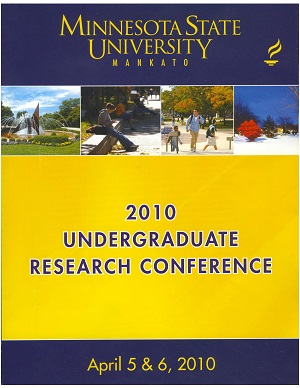The Development and Characteristics of Collegiate Basketball Coaches’ Coaching Philosophies
Location
CSU 253/4/5
Start Date
5-4-2010 1:00 PM
End Date
5-4-2010 3:00 PM
Student's Major
Human Performance
Student's College
Allied Health and Nursing
Mentor's Name
Cindra Kamphoff
Mentor's Department
Human Performance
Mentor's College
Allied Health and Nursing
Description
Research indicates that outstanding coaches have well-developed coaching philosophies (Collins, Gould, Lauer, & Chung, 2009). In fact, Vealey (2005) argues that a coaching philosophy provides coaches meaning and direction, and allows coaches to develop a sense of purpose. She says that a philosophy should be a how to manual to guide a coaches’ actions and decisions. Similarly, Lyle (2002) defines a coaching philosophy as beliefs that guide coaching actions. Although some research has suggested the importance of developing a coaching philosophy, few studies have examined how coaches develop their own coaching philosophy (Collins et al., 2009; Pratt & Eitzen; 1989; Wilcox & Trudel, 1998). Without a grasp on how these philosophies are developed, it becomes difficult to inform future coaches how to develop their own coaching philosophy. The purpose of this study was to determine the characteristics of collegiate coaches’ philosophies, how their philosophies were developed, and how their philosophies have changed over time. In-depth semi-structured interviews were conducted with 10 male basketball coaches who coach at the collegiate level. The coaches were contacted by phone and/or email to arrange the interview. The interviews were transcribed verbatim and analyzed for reoccurring statements or ideas and developed into themes. Full results including the themes and practical implications from the study will be discussed.
The Development and Characteristics of Collegiate Basketball Coaches’ Coaching Philosophies
CSU 253/4/5
Research indicates that outstanding coaches have well-developed coaching philosophies (Collins, Gould, Lauer, & Chung, 2009). In fact, Vealey (2005) argues that a coaching philosophy provides coaches meaning and direction, and allows coaches to develop a sense of purpose. She says that a philosophy should be a how to manual to guide a coaches’ actions and decisions. Similarly, Lyle (2002) defines a coaching philosophy as beliefs that guide coaching actions. Although some research has suggested the importance of developing a coaching philosophy, few studies have examined how coaches develop their own coaching philosophy (Collins et al., 2009; Pratt & Eitzen; 1989; Wilcox & Trudel, 1998). Without a grasp on how these philosophies are developed, it becomes difficult to inform future coaches how to develop their own coaching philosophy. The purpose of this study was to determine the characteristics of collegiate coaches’ philosophies, how their philosophies were developed, and how their philosophies have changed over time. In-depth semi-structured interviews were conducted with 10 male basketball coaches who coach at the collegiate level. The coaches were contacted by phone and/or email to arrange the interview. The interviews were transcribed verbatim and analyzed for reoccurring statements or ideas and developed into themes. Full results including the themes and practical implications from the study will be discussed.
Recommended Citation
Vroman, Tony. "The Development and Characteristics of Collegiate Basketball Coaches’ Coaching Philosophies." Undergraduate Research Symposium, Mankato, MN, April 5, 2010.
https://cornerstone.lib.mnsu.edu/urs/2010/poster-session-B/9




